



















As we move into a world of unparalleled generational, political, economic and technological change, our mission ‘to develop skills, knowledge and behaviour that help individuals thrive and enhance the region’s economic and social prosperity’ has never been more important.
This updated strategy highlights that our core priorities remain the same, whilst our courses and collaborations continue to evolve, strengthen and adapt.
Our determination to deliver high quality technical and professional education which drives the economy and supports rich career opportunities in our local area and beyond, will continue to directly support both the Government’s skills agenda and that of our Tees Valley Mayoral Combined Authority and emerging Local Skills Improvement Plan.
Our dual purpose ensures that we do not simply focus on raising aspirations and promoting successful progression into high value jobs wherever and whenever they may exist; but that we also fulfil our obligation to our local community, to provide a place based offering, in a welcoming and harmonious atmosphere, whereby we can support those furthest from the workplace to develop their confidence through a programme of support and a comprehensive offer of second chance education and retraining.
At the very heart of our new strategy is our commitment to support individuals of all backgrounds to thrive.
Ensuring our students leave college with more than simply a qualification, but with valuable life skills which enrich their character, develop their understanding of the world around them, promote a healthy lifestyle, enhance their skills and attributes – and ultimately prepare them well to thrive in life and work.
Critical to this is ensuring our staff are also able to thrive at and beyond work. That they are curious and reflective individuals who are keen to learn from others, to collaborate utilising evidence where it is available and sharing good practice within and outwith our organisation to develop both themselves, their colleagues and their students.
This strategic plan has been developed in consultation with our stakeholders, which include civic partners, employers and their representative bodies, other local training providers and community organisations. Our strategy has underpinning commitments to collaborate with others and to maintain sustainable provision which manages public money responsibly and both increases aspiration and maximises the social mobility of students across the Tees Valley and beyond. It brings together our various operational strategies, to ensure we have the clarity, resources and focus required to manage risks effectively and to achieve our objectives in the coming years.
This strategy sets out our ambition and priorities to 2025 and we very much look forward to working with you in its delivery.
Rob Davies Chair of Governors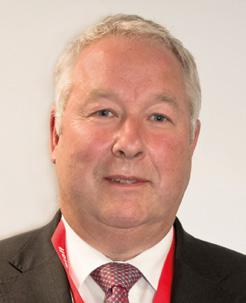 Zoe Lewis Principal/ Chief Executive
Zoe Lewis Principal/ Chief Executive

Middlesbrough College Group has a rich history dating back to the early 1900’s when local industrialists first established a training centre to ensure employers had access to the skills they needed for industrial growth at that time. Fast forward to our more recent past and the College today is made up of six previously independent organisations, each with their own proud legacy. Those organisations are Longlands College, Kirby College, Marton College, Acklam Sixth Form College, NECC training company and TTE engineering training company.
Strategic investments have shifted our provision mix over the years such that the percentage of full-time students studying in LEP priority sectors has grown from just over one quarter to 70% since our relocation.
As the largest further Education College in Teesside, the College relocated to Middlehaven in 2008 to ensure students from across the wider conurbation could have greater access to the wide range of regionally significant technical and professional specialisms.

With regular insight and input from local employers, alongside careful and frequent mapping against our local economy, the College offers courses from Entry Level to Level 7 that support every sector of the economy including through:
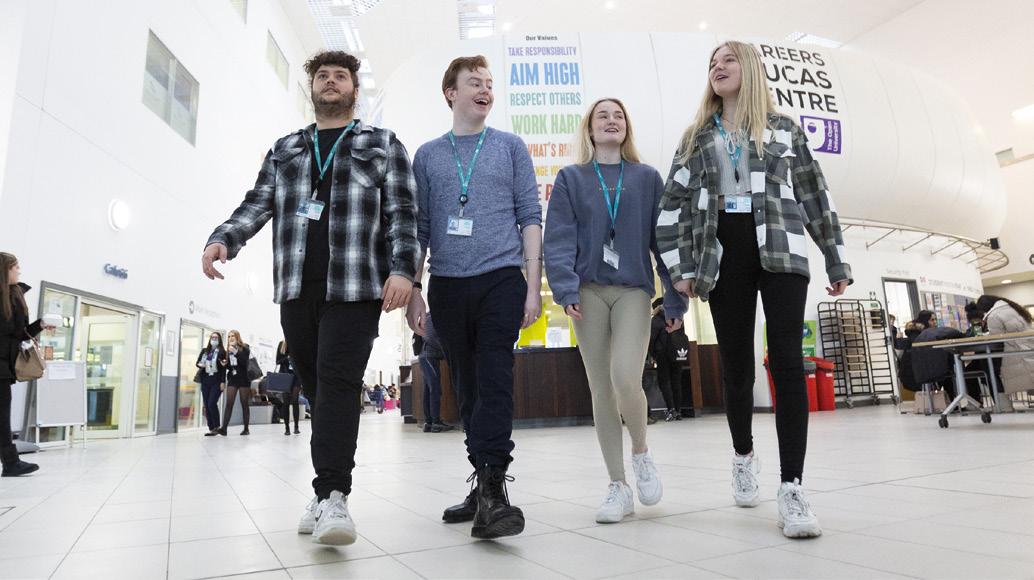
• A Levels
• T Levels
• Vocational Courses
• Apprenticeships
• Adult part-time courses
• Higher Education courses
• Community learning
• Distance Learning
The close map between courses and employment means very high proportions of our students progress to positive destinations as below:
96% 16-19
96%
83% of employed adults agreed their course had helped them develop the skills they needed
99% Access to HE
98% of apprentices
200+ learners with an EHCP - achieve in line with their peers
As an anchor institution, we employ over 1000 staff, with the majority based at our Middlehaven campus, and work with a small number of trusted subcontractors, alongside our own small regional offices to ensure we fully meet regional priorities.
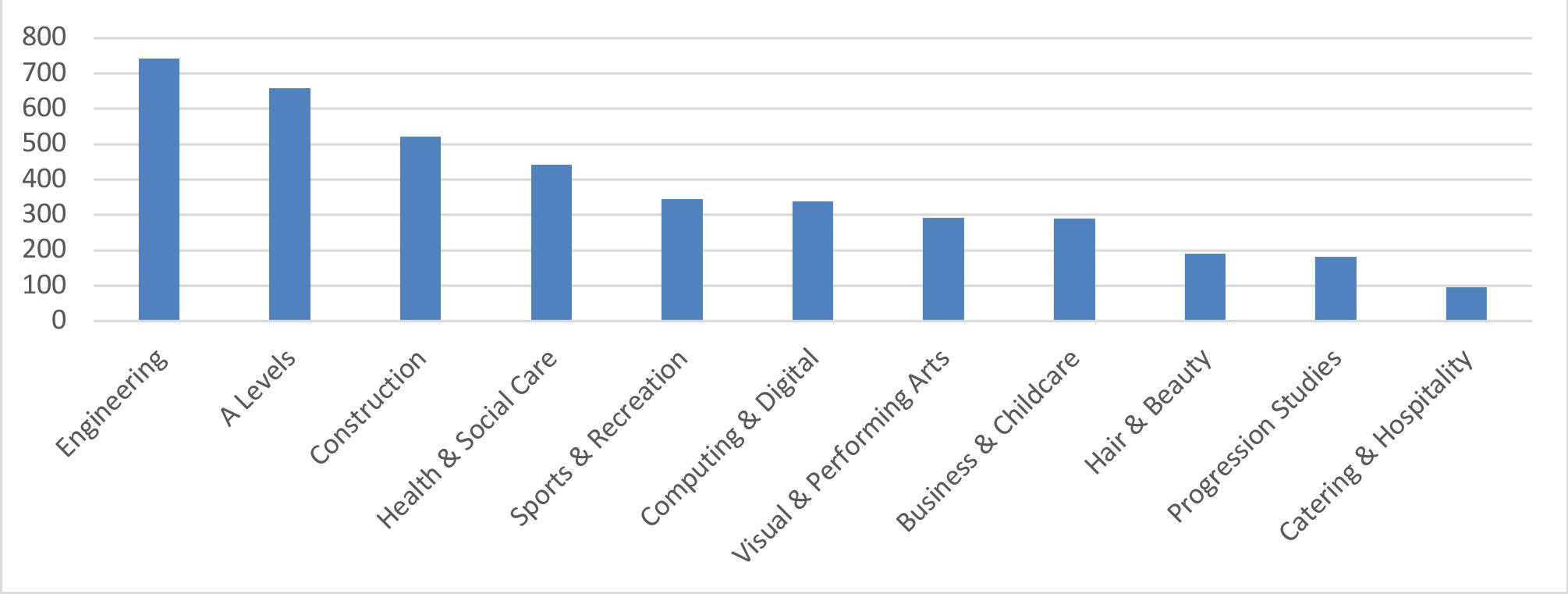





Tees Valley ranks as the second most deprived Local Enterprise Partnership (LEP) area in England with all five Tees Valley districts ranking in the most deprived 15% of local authorities nationally.
When comparing the Tees Valley local authorities, the employment rate is lowest in Middlesbrough at 64%.
Tees Valley has some of the country’s highest economic inactivity rates with 25.4% of the working age population in Tees Valley being economically inactive in June 2020 compared to 20.3% nationally.
Youth unemployment whilst at a historic low, remains an issue with a higher than average number of 16-24-year olds unemployed and claiming benefits. In addition, a high and recently increasing number of 16-17-year olds are NEET (Not in Education, Employment or Training) with cost of living pressures placing greater pressure on these families.
Tees Valley has a higher percentage of 16-34 year-old residents starting an apprenticeship than nationally and apprenticeship achievement rates are consistently higher than national. However, apprenticeship starts are half what they were five years ago (55% lower) compared to a 45% drop nationally.

The percentage of graduates in employment 15 months after graduating matches the national rate. However graduate retention is an issue,
olds
The number of school leavers is predicted to rise significantly over the period of this plan across the College’s main local authority student residency areas:
with only 41% of Tees Valley graduates finding employment within the Tees Valley 15 months after graduating. Over a quarter of graduates (28%) were working in non-graduate roles, potentially displacing those with lower level skills into unemployment.
This is largely due to the Tees Valley having a lower percentage of professional level jobs available compared to nationally (37% compared to 42%) and the median gross annual full-time wage in Tees Valley is lower than nationally (£28,080 compared to £31,770).
73% of graduates from Higher Education Institutions (HEIs) in Tees Valley remain employed within the North East region 5 years after graduation.
Lack of qualifications is a significant barrier to employment. The percentage of Tees Valley residents with no qualifications (11%) is higher than national rates (7%) and the second highest of any SAP area.
The Tees Valley has seen increasing numbers of asylum seekers seeking local authority support. At September 2022, over 2000 required support –one of the highest rates in the country.
The Tees Valley is an area of skills devolution and as such the College receives its Adult Education funding through our local Mayoral Combined Authority and work closely with them to meet adult skills needs.

Tees Valley has a conterminous, fully integrated Combined Authority, covering 300 square miles, with a population of around 676,000.
The region has a number of traditional industries, some of which have declined over time, resulting in job losses for many Tees Valley residents. However, many industries have successfully evolved and repositioned themselves in the economy - alongside emerging new growth sectors.
Tees Valley has significant sectoral strength and relatively high employment in higher productivity sectors such as Chemical & Process, Clean Energy, Low Carbon & Hydrogen and Advanced Manufacturing. Construction sub-sectors including civil engineering and specialised construction together with Logistics sub-sectors such as road freight transport are also well represented. Health and Social Care is one of the largest sectors for employment in Tees Valley, and there are also high volumes of jobs in public administration, defence, education and IT. We have emerging strengths in Digital and Business & Professional Services.
Tees Valley has a wide range of extensive development sites, opportunities and financial incentives including the Mayoral South Tees Development Corporation Teesworks the UK’s largest industrial development zone and first Mayoral Development Corporation outside of Greater London.

Over half of the new jobs created will require higher level technical, science and digital skills. 45% of these are considered to be in more senior and managerial roles.
High growth is anticipated in:
• Advanced manufacturing
• Process, chemicals and energy
• Logistics
• Health and biologics
• Digital and creative
• Culture and leisure
• Business and professional services

46% of replacement jobs will be across a range of levels, including entry level jobs offered as part-time opportunities and apprenticeships. High volume replacement is expected in:
• Public administration, defence and education
• IT, media and other service industries

• Production industries
• Professional and business services
• Healthcare
Teesworks has recently been named the UK’s largest Freeport, with the potential to create 18,000 high-skilled, good-quality jobs supporting the offshore wind, clean energy, chemicals and processing, and advanced manufacturing sectors. Also, at the heart of the Teesworks site, Net Zero Teesside will be the UK’s first carbon capture utilisation and storage facility (CCUS). The project is set to decarbonise the area’s carbon-intensive businesses by as early as 2030.

Tees Valley has high ambitions for jobs growth and high levels of replacement demand in the following sectors:

The Tees Valley Local Skills Improvement Plan (LSIP) is due for publication in May 2023. This will focus on the following key sectors and Middlesbrough College is working closely with the North East England Chamber of Commerce to support its development. We are fully committed to responding to its recommendations which will support the sectors below:
Green Energy / Net Zero – in two phases:
Immediate: Construction, Transport
Longer term: Green Energy/ Net Zero
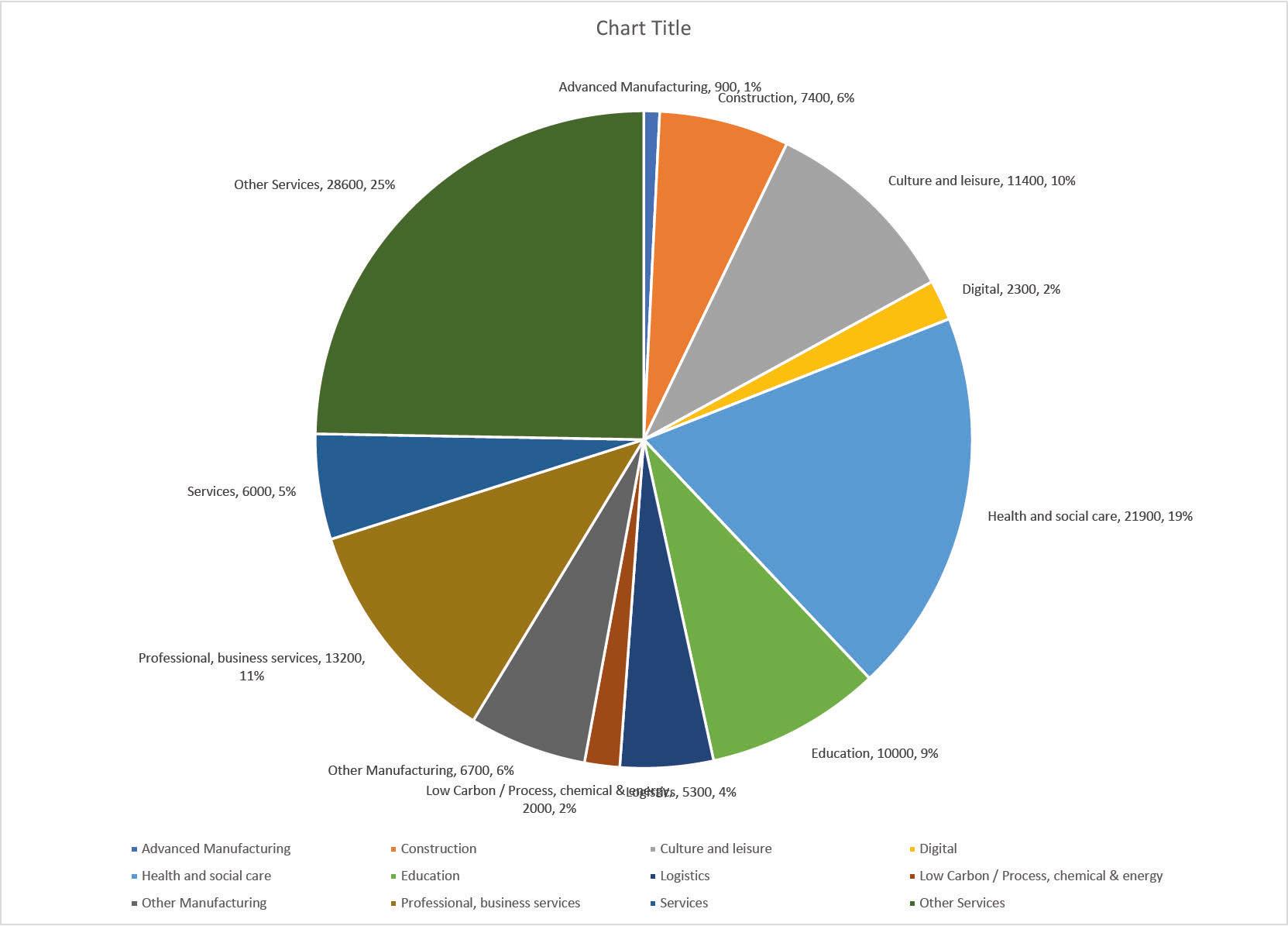
Manufacturing
Health and Social Care
Immediate requirement - high volume, current jobs
Cross sector skills
• Digital
• Professional
• Project Management
• Finance
Our curriculum offer is developed through feedback from a network of important stakeholders and labour market information including:
National Policy:
• T Levels
• National Skills Fund
• Digital entitlement
• IoT Level 4/5 courses
• Apprenticeships reforms
• L3 qualification reforms
• HTQ reforms
• Skills Bootcamps
• LSIP / SDF sectors
SAP / LSIP Priority Sectors:
• Advanced manufacturing
• Process, chemicals and energy
• Logistics
• Health and biologics
• Digital and creative
• Culture and leisure
• Business and professional
Employer and Job Centre
Vacancy Support:
• Security
• Health and care
• Warehouse
• Transport & logistics
• Construction
• Call centre
• Cladding
• Welding
• Retail
LMI Sources:
• LSIP sectors
• Lightcast LMI and skills data
• Vector job opening
• TVCA LMI reports
• National skills shortage lists
• DWP referrals
• Destination data analysis
• IoT sector group feedback
Employer Forums – Direct
Feedback:
• Digital skills
• Employability skills
• Literacy and numeracy skills
• Time management
• Competencies
• Independent thinking
• Specific sector related skills
Key:
SAP - Skills Advisory Panel
LSIP - Local Skills Improvement Plan
HTQ - Higher Technical Qualiifcation
TVCA - Tees Valley Combined Authority
LMI - Labour Market Information
Mayoral Combined
Authority:
• STDC/Teesworks /Inward investors/Net Zero Teesside
• Growth/high value sectors
• Skills shortage areas e.g transport & logistics
• Improve adult basic skills/reduce long term unemployed
• NEET reduction programmes
• Improve retention of graduates
• Improve education levels of our adult population
Key Partners to Fill Specialisms:
• Transport / plant training
• Charities – to engage hard to reach
• Neighbouring areasjob centre skills
ESOL - English for Speakers of Other Languages
Middlesbrough Local Authority Priorities:
• Digital skills
• Long term unemployed
• Partnership working
• Community learning
• ESOL
DWP - Department for Work and Pensions
IOT - Institute Of Technology
STDC - South Tees Development Corportation
NEET - Not in Education, Employment or Training
SDF - Strategic Development Fund
In the last seven years, the College has responded to stakeholders through delivering the following strategic developments:
• A £20m investment in STEM facilities (2015) and subjects; such that now 70% of our school leavers are studying in ‘priority’ sectors rising from one quarter since our move to Middlehaven
• The acquisition of a respected apprenticeship training company (NECC training) covering complementary sectors and a wider geographic reach across the North East of England – creating Northern Skills, the apprenticeship and training arm of the College (2016) which focuses on technical and professional apprenticeship training including dentistry, accountancy, engineering and digital
• Becoming an active partner in the North East Institute of Technology collaboration (2019) –developing higher technical qualifications to meet local needs
• Utilising devolved flexibilities to develop new and improved bespoke employer led provision (BELPs) through our new adult and community learning centre (2019)
• Transferring TTE, a strategically important specialist engineering training provider into the group (being adjacent to a new Freeport) (2020)
• Delivering T Levels from 2021

• Supporting Freeport inward investors, through a collaboration with local providers as part of the Teesworks Skills Academy consortium (2021)
• Working in partnership with our employer representative body (ERB) to develop a Trailblazer LSIP and delivering associated Strategic Development Fund projects (SDF) (2021-22)
• Investing in skills shortage areas, opening T Level digital & construction centres in 2022
These investments have resulted in the College having a close match to professional & technical job openings in our local area:
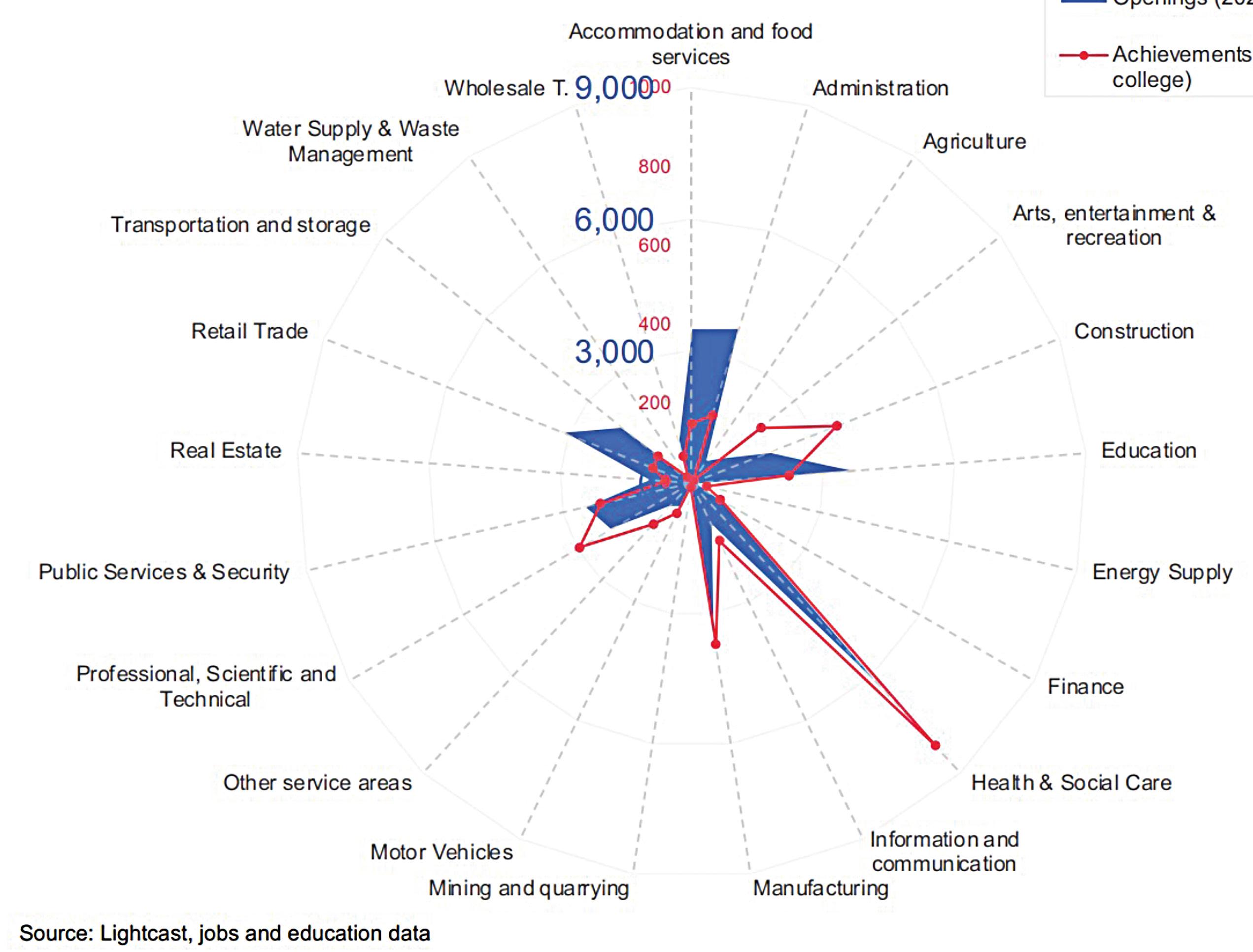
Microsoft skills: These are cited as the number one skill set required across job vacancies within the Tees Valley and as a Microsoft showcase college (in 2022) we aim to develop these key skills in all of our students.

National priority / STEM specialists: Our commitment to support STEM industries continues with the most recent focus on 'T' i.e. (technology) following extensive expansion in engineering courses over recent years. Our priority to deliver the government’s agenda through developing T Levels, skills bootcamps, IoT courses and HTQs will continue in this vein.
Adult basic skills and ESOL: Given the low levels of literacy and numeracy in our area, we will expand adult basic skills and ESOL provision to improve selfconfidence, employability, social integration and productivity.
Support the growing needs of the Health and Care sector
We will work with the NEECC who are leading on the Tees Valley LSIP to ensure we fully meet the growing needs of the health and care sector and NHS.
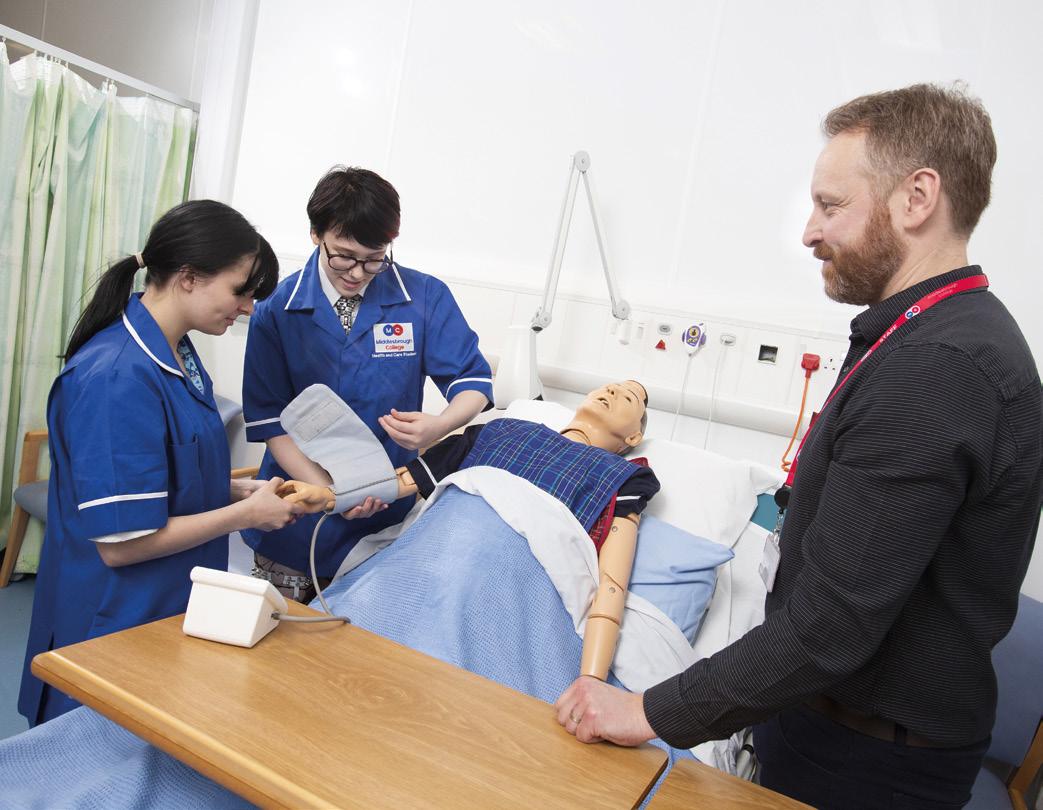
Supporting the ‘Green’ revolution: Whilst we already have 22 courses which develop green skills, we will expand these specialisms to meet the ambition for net zero 2050 and the requirements set out in the LSIP trailblazer including:
• Power
• Industrial energy
• Homes and buildings
• Transport
• Enabling decarbonisation
Bespoke adult retraining: We will continue to respond to current employer need through developing bespoke courses such as; care, catering and hospitality, logistics, security, forklift truck, transport (LGV/HGV) construction trades including ground works, cladding, plant operations and many more.
Inclusive curriculum
We will expand our support for those most vulnerable; students with SEN, care experienced young people, students supported through Children in Need plans, those supported through Child Protection plans, children claiming universal credit in their own right and those who may be vulnerable, exploited, missing or trafficked. We will expand our work with local authorities and schools to support those who are at risk of or have become NEET (Not in Education, Employment or Training) through targeted transition support and alternative provisions.
• Respond positively to qualification reforms
• Expand T Levels and work placements
• Expand and enhance our digital courses linked to skills shortage areas and digital skills of all learners
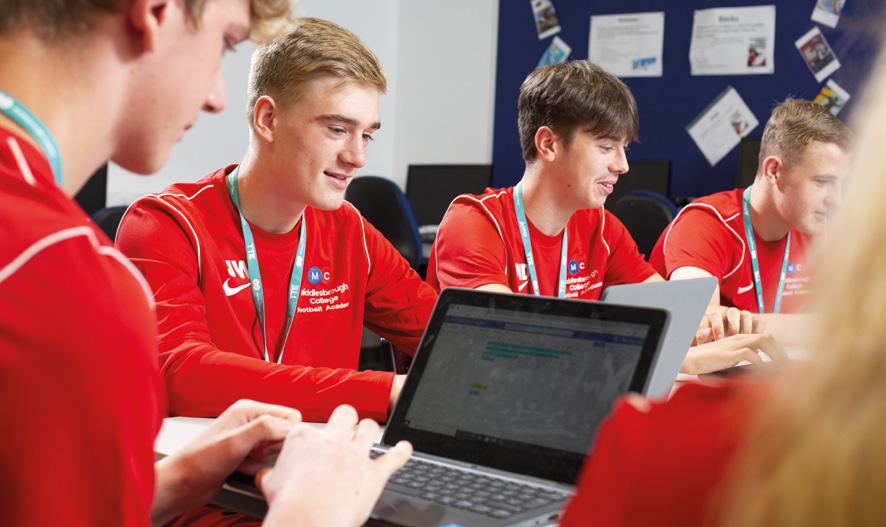
• Improve our transition work for school leavers and enhance our in-year re-engagement offer to reduce NEETs
• Develop a partnership with World Skills UK to enhance our practices and embed world class competencies and standards
• Develop each individual to be active citizens through our Thrive programme - including social action projects
• Support the TVCA skills priorities including expanding our own bespoke employer led programmes

• Deliver the new National Skills Fund and reform our offer for lifelong learning
• Expand community learning including digital entitlement and basic skills training
• Support those new to our area for whom language is a barrier


• Continue to expand our apprenticeships offer in skills shortage areas and in particular at the higher levels
• Expand our work with levy paying employers
• Extend supported internships and adapt our personalised learning offer

• Meet the growth targets set out in the NE Institute of Technology partnership

• Respond to the Office for Students (OFS) targets
• Retain existing and expand new international clients –providing an on-site and on-line high quality technical offer, exploiting cross selling opportunities
• Expand our commercial course offer, particularly in skills shortage areas
• Open our campus for all on a 'not for profit' basis
Our Taking Teaching Higher Strategy, was developed in 2021 and seeks to ensure:
This strategy will contribute to the teaching and learning cycle as set out below:
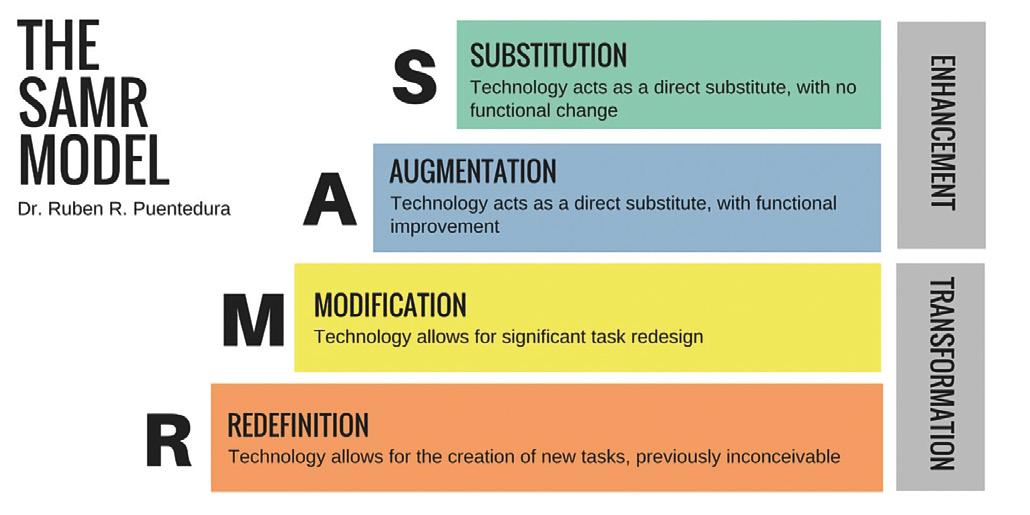

• We empower all our practitioners across the College to utilise up to date evidence based practice
1. Understanding the curriculum intent
2. Creating a supportive and developmental environment
• Practitioners innovate through technology enhanced learning
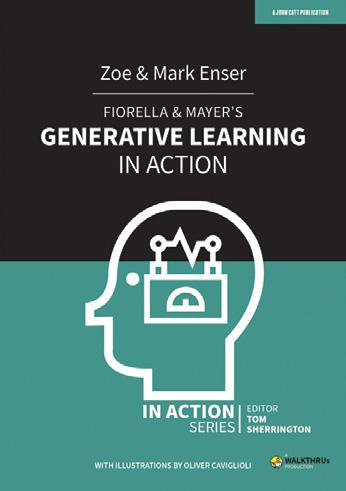



1) Understanding the curriculum intent
• We create an environment of selfreflection and continuous improvement to support our learners to make good progress and thrive, becoming valued employees and active citizens
5) Using assessment effectively to maximize learning
5) Using assessment effectively to maximize learning
Review
Review
The strategy was launched in the summer of 2021 alongside a programme of significant investment in mentoring and professional development capacity, and a new leadership arrangement reporting into our Governors’ Standards Committee.
4) Advancing deep thinking and mastery
4) Advancing deep thinking and mastery
1) Understanding the curriculum intent
3. Developing positive behaviour & attitudes to learning
4. Advancing deep thinking and mastery
5. Using assessment effectively to maximise learning
Adapt Annual Course Review


6. Progressing to higher level or employment
2) Creating a supportive and developmental environment
2) Creating a supportive and developmental environment
The strategy will be delivered & monitored through:
• A comprehensive programme of both internal and external continuous professional development including extensive use of "How 2's" and coaching / sector professional qualifications
3) Developing positive behaviour and attitudes to learning
3) Developing positive behaviour and attitudes to learning
• A comprehensive suite of quality assurance mechanisms
• An annual review process which feeds into the following year’s CPD plans
Enhanced
Central to this plan is our commitment to help both our staff and students to thrive.
Our two 'Thrive' programmes do just that, supporting all individuals to regularly assess their skills, reflect on their development and support needs, access activities that both support and enrich their lives, and external experiences that share good practice or
develop their awareness of the wider world and employment market. Through excellent teaching and staff development our Thrive programmes can respond flexibly to these needs and ensure a cycle of continuous development and reflection, creating a growth mindset and ensuring our people become the best they can be.

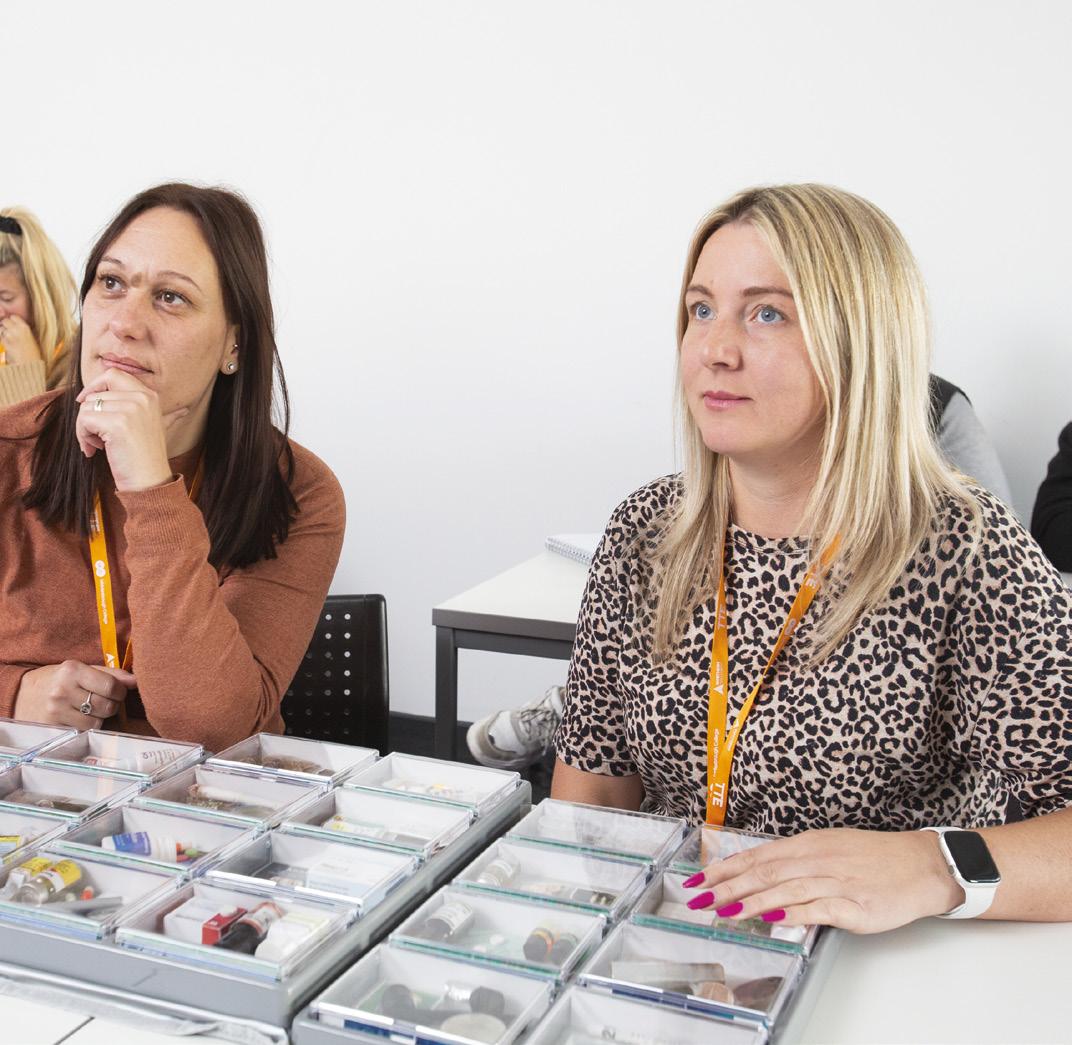


To develop skills, knowledge and behaviours that help individuals to thrive and enhance the region’s economic and social prosperity.
Mission
To develop skills, knowledge and behaviours that help individuals to thrive and enhance the region’s economic and social prosperity.
Our Ambition
Ensure students achieve their full potential through outstanding teaching & learning.
Our Commitment Support our employers with their workforce development needs.
Provide a safe, welcoming, inclusive and supportive environment for our community.
Our Team
Attract, develop and retain a highly skilled, value driven and passionate team of staff.
Our Resilience
Maintain financial and regulatory stability.
OURPARTNERS - Work closely with ourexternal partnersshaping policy and adaptingouroffer.
Work closely with our external partners shaping policy and adapting our offer.
We will:
• Listen closely and be advised by our stakeholders and respond swiftly to the priorities identified by national government, by our Local Skills Improvement Plan (LSIP), by the Tees Valley Combined Authority Strategic Economic Plan 2016-2026 and by our local employer partners

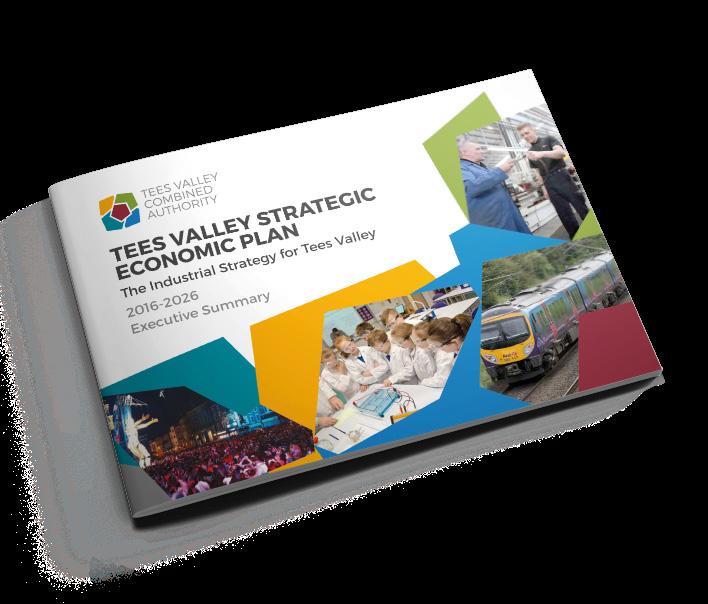

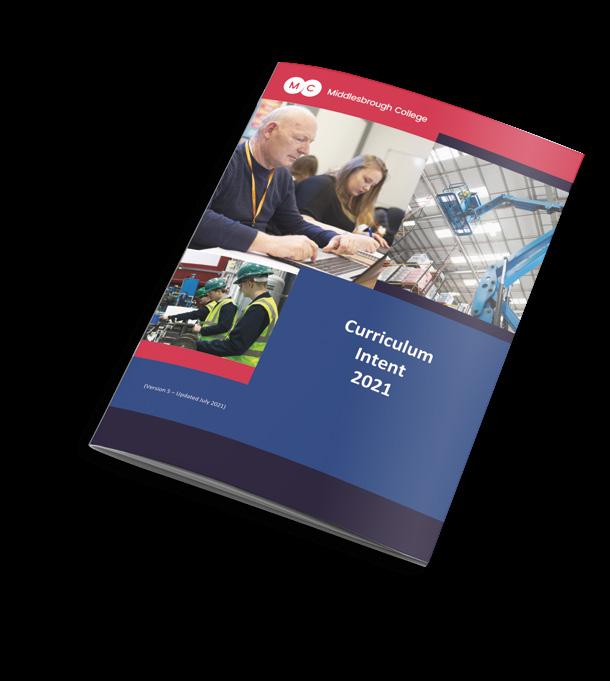

• Use our experience and knowledge to actively influence skills policy at both a national and local level and show leadership through our proactive implementation of these
• Work collaboratively with organisations to benefit our local community and economy
• Work closely with schools and Universities to ensure positive progression rates and reduce those not in education and employment
• Develop partnerships with employers and employer representative organisations meet their workforce needs and ensure a smooth transition between education and employment
• Regularly assess our curriculum offer against current and future labour market needs and adapt our provision accordingly, ensuring up to date skills knowledge and behaviours as identified by employers are included throughout
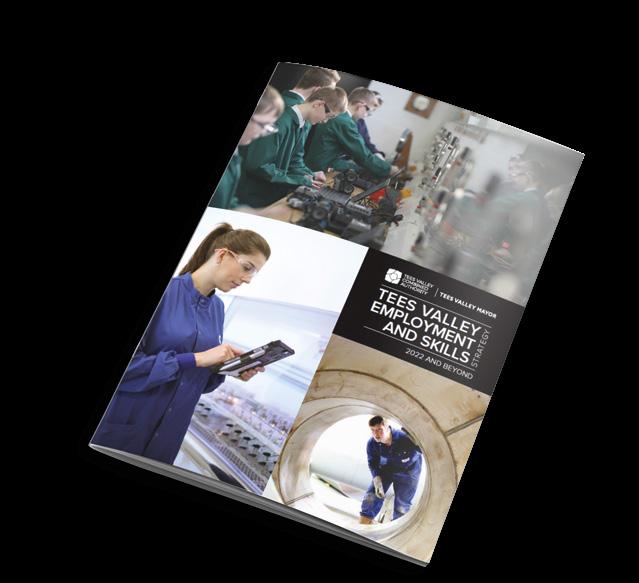
• Strengthen our partnership with the Open University, Pearson Education and our partners in the North East Institute of Technologyenhancing our flexible and affordable higher level offer
• Develop close partnerships with charities, community groups, job centres and other agencies who can support our students to succeed
• Listen and respond to our students, parents/ guardians and other stakeholders to improve our education offer and experience
Ensure students achieve their full potential through outstanding teaching & learning.
We will:
• Deliver outstanding teaching, learning and assessment - with a particular emphasis on enhancing the personal development of our students - including our digital learning and Thrive tutorial programme
• Ensure all students achieve their aspirations and make significant progress from their starting point
• Ensure positive progression rates between levels and to higher education, apprenticeships, sustained employment, selfemployment or career enhancement
• Provide added value to all our students, by developing their skills, behaviours, competencies and entrepreneurial skills which prepares them for life and employment
• Develop the literacy, numeracy and digital skills of all our students to increase their life chances
• Develop innovative digital technologies and highly skilled digitally competent staff to enhance the learning experience of all our students
• Ensure high student satisfaction rates and positive learner voice on all programmes
• Ensure our teachers use up to date evidence to improve their practice and deliver high student outcomes
• Provide students with a wide range of opportunities to engage with employers, including work experience, guest speakers, industry visits, educational trips and skills competitions
We will:
• Co-create bespoke workforce development solutions with employers, to enhance business growth and productivity
• Meet employer demand, to create a full and comprehensive workforce development offer
• Work with employers to ensure that all apprentices develop high quality knowledge, skills and behaviours, supporting them in their personal development which will help contribute to increased business productivity
• Support the development and expansion of our high value industries and companies looking to invest in the Tees Valley
• Actively support the STEM agenda across all levels of the Education system
• Lead and participate in regional skills partnerships and competitions
• Expand our engagement with employers and adapt our curriculum design and delivery in response
• Ensure all Study Programme students are provided with high quality work experience, including expanding our T Level industry placements
• Ensure high levels of employer satisfaction
Provide a safe, welcoming, inclusive and supportive environment for our community.
We will:
• Support and enrich the social, cultural, economic, sustainable and physical wellbeing of our community
• Create a positive culture and ethos where safeguarding and vigilance are an important part of everyday life and that all statutory duties in relation to safeguarding are met

• Provide an environment in which students feel safe because staff and students do not accept bullying, harassment, discrimination or abuse in college or online
• Provide a calm, supportive, positive and disciplined environment where students, staff and visitors feel welcome, safe, valued and respected
• Actively promote and embed equality of opportunity and celebrate diversity in our community and ensure that all students are given a fair and equal opportunity to an outstanding student experience which allows them to thrive
• Provide a vibrant enrichment and Thrive programme tutorial offer which complements our curriculum and enhances skills, knowledge and behaviours that help individuals to thrive, promoting positive citizenship and social action
• Ensure continued commitment and provide high quality, integrated and timely student learning support services including for those with special educational needs and disabilities, language barriers and mental health
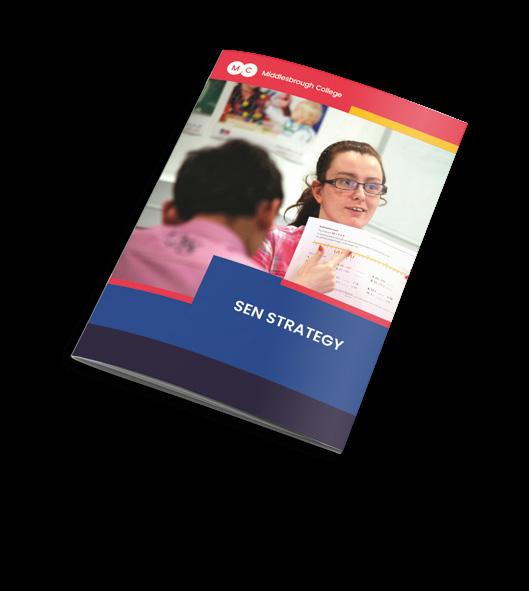
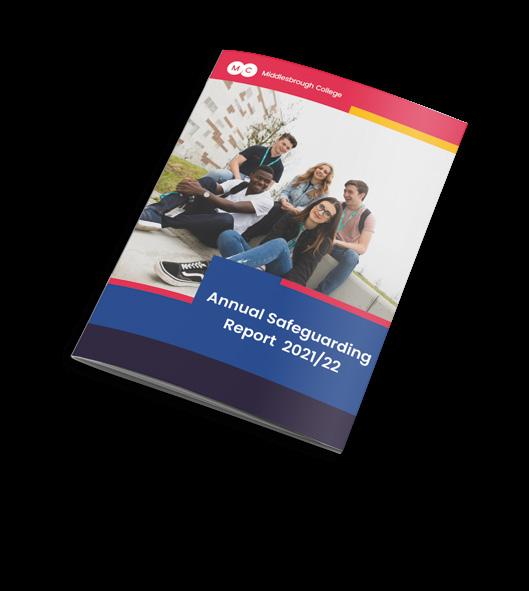
• Provide outstanding information, advice, guidance and support that meets the needs of all students and prospective students through our careers strategy

• Listen carefully to the student voice which is representative of the student population and respond swiftly in order to provide the best possible student experience
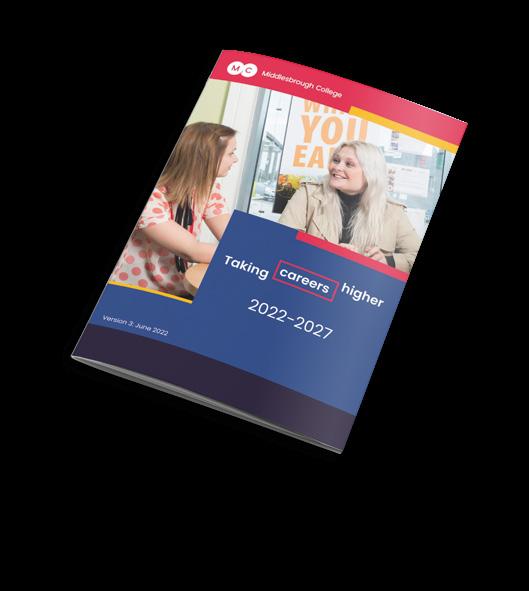
Attract, develop and retain a highly skilled, value driven and passionate team of staff.
We will:
• Support our staff to thrive, reflect and develop their personal and professional attributes
• Maximise the potential, talent and performance of our staff through effective leadership, support, resourcing, training and development
• Continually foster a ‘one team’ culture based on a common set of goals, values and equality for all
• Adopt a workforce plan which addresses skills shortage areas, BAME representation, expands apprenticeships and develops succession plans for key roles
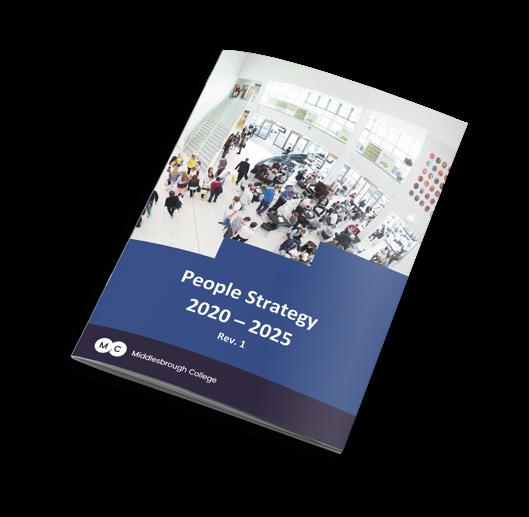


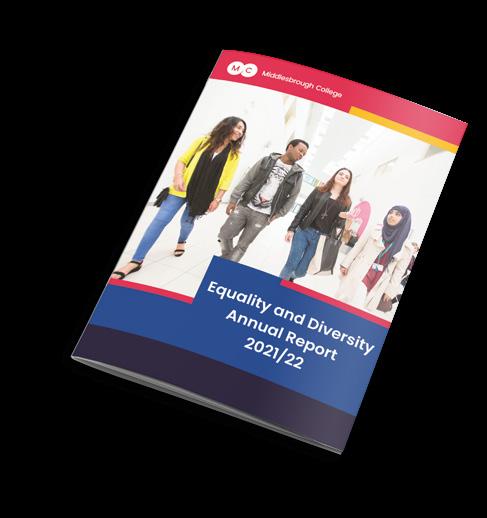
• Ensure we demonstrate the highest standards of customer service and always expect the highest standards of our students
• Listen carefully to staff and respond to suggestions to improve the College and its service to students, employers and the wider community
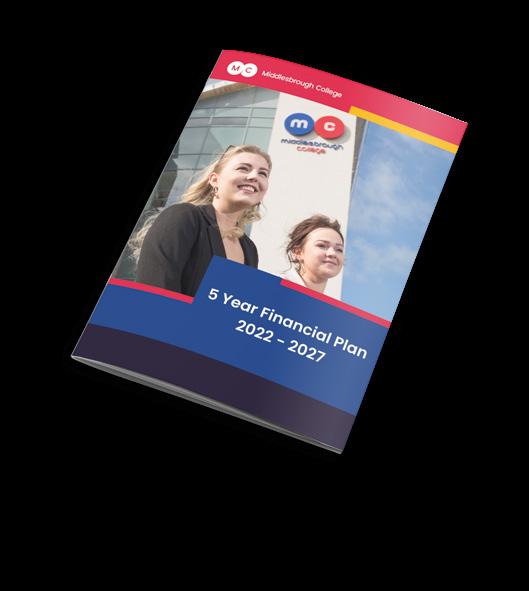

• Place a high emphasis on wellbeing and managing workload to ensure our staff sickness and turnover levels remain below national rates
• Promote a culture that recognises and celebrates achievement
• Actively promote and embed a culture of agile working to support the wellbeing of our workforce
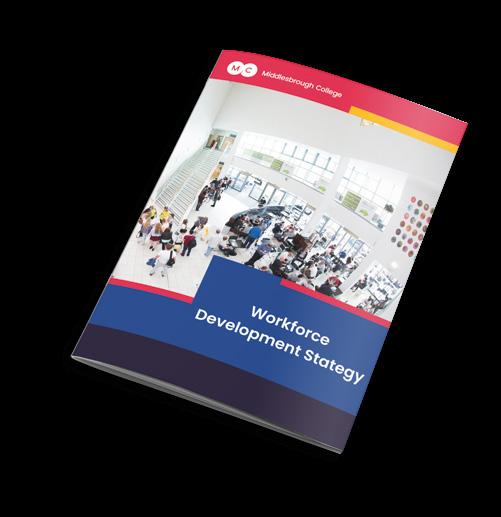
Maintain financial and regulatory stability.
We will:
• Ensure strong financial stability and meet bank covenants and ESFA health ratings at all times
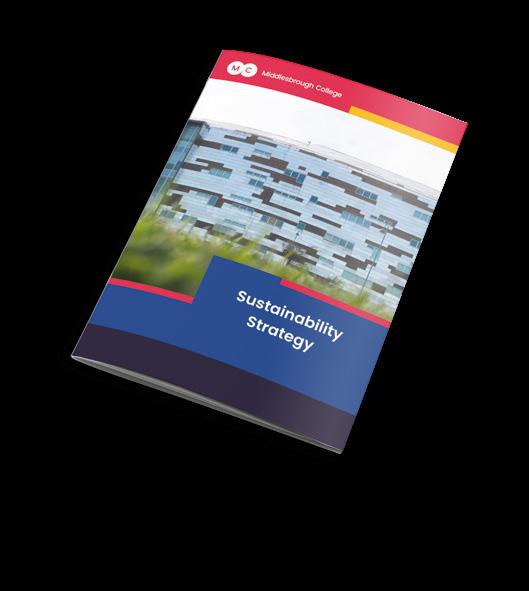
• Continue our campus and digital investment plans to maintain an outstanding, state of the art learning environment – across all sites
• Ensure our College operates to the highest standards of health and safety
• Strive to become net zero by 2030 and promote sustainability in all we do.
• Open our facilities for community and charity use on a not for profit basis
• Provide a forum which regularly assesses, monitors and manages risk
• Ensure adequate arrangements are in place to safeguard our data and reputation and to ensure continuity of our business
• Ensure our governing body maintains a broad range of skills and experience, able to set and review our strategic plan with objectivity and ‘value driven’ decision making and provide appropriate levels of challenge and support to ensure its delivery
Middlesbrough College Governing Body, December 2022
“Our £30m campus and digital development plan has almost come to an end and we are confident this will support growing numbers of school leavers, new priority qualifications and sectors, and rising expectations of the use of technology in learning and at work. This current financial plan will ensure our focus is firmly rooted in developing our staff and students to thrive in this challenging economic climate alongside a determination to manage public money wisely, as we move through this new era of public sector classification”
Since relocating to Middlehaven in 2008, the corporation has authorised significant investment in the campus, social areas and digital capability of the College. The final piece of our campus plan is to relocate TTE to the main site and to develop the capacity and capability to support emerging green sectors. This project is scheduled for completion with an opening date of Summer 2024.
This development will make the College one of the largest engineering training providers in the country for school leavers and will directly support local and LSIP priority and emerging sectors.
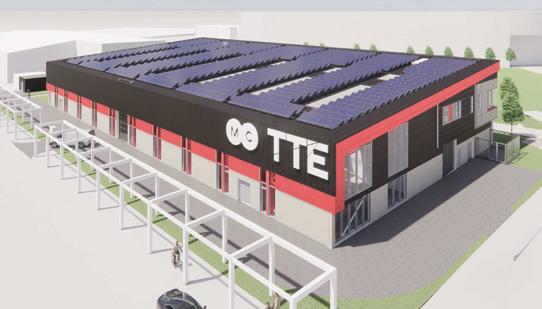


Our Ambition
Key external risks to us achieving our strategic plan:
Our Commitment
Our Community
Post COVID impact on apprenticeships, employment & school leaver grades
Increasing cost of living concerns amongst students and their parents
Teacher and FE staff shortages cause disruption for students

Our Team
Teacher shortages
exacerbated by lack of parity of FE pay with schools, Universities and industry
A weak economy limits our ability to secure apprentice and industry placements
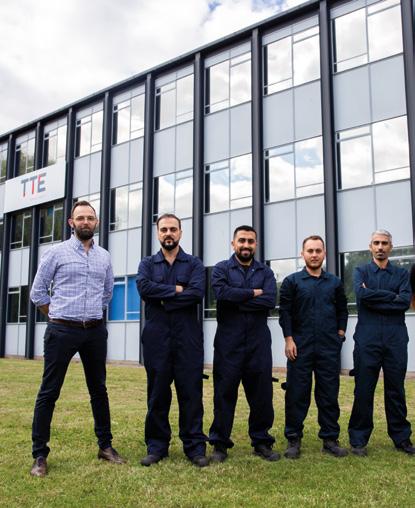
Our Resilience
FE funding remains low and public sector controls reduce our ability to borrow and to be responsive to emerging priorities
Post COVID impact on attendance, behaviour and increasing mental health and safeguarding concerns
Our Partners
Priorities sometimes conflict between local, national and employer demands
Middlesbrough College is committed to adding value to the social, economic and physical well-being of the local community it serves.

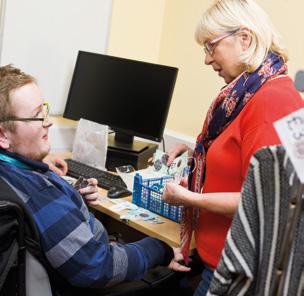


We are committed to raising aspiration, increasing opportunity and providing a foundation for sustainable economic growth and prosperity.
Central to our responsibility is our work with partner organisations and our obligation to enrich the social, cultural, economic and physical well-being of our whole community.
In practice, this means we are ready, willing and able to respond to the needs of our community whatever and wherever they may be.
In making this commitment we may be challenged to work in new ways and, at times, our own capability or capacity may be tested.
We are nevertheless determined to devote ourselves to, and measure ourselves against, this endeavour.
Each year, we will publish an accountability statement on our website setting our SMART targets relating to our curriculum priorities for the following year.
They gain relevant work experience
In year, we utilise a range of metrics to determine our impact.

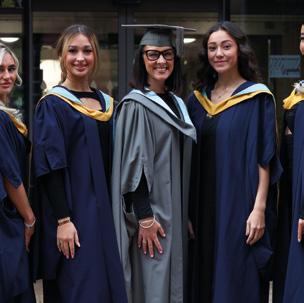







Middlesbrough College

Dock Street
Middlesbrough
TS2 1AD
Tel. 01642 333333

Web. www.mbro.ac.uk
